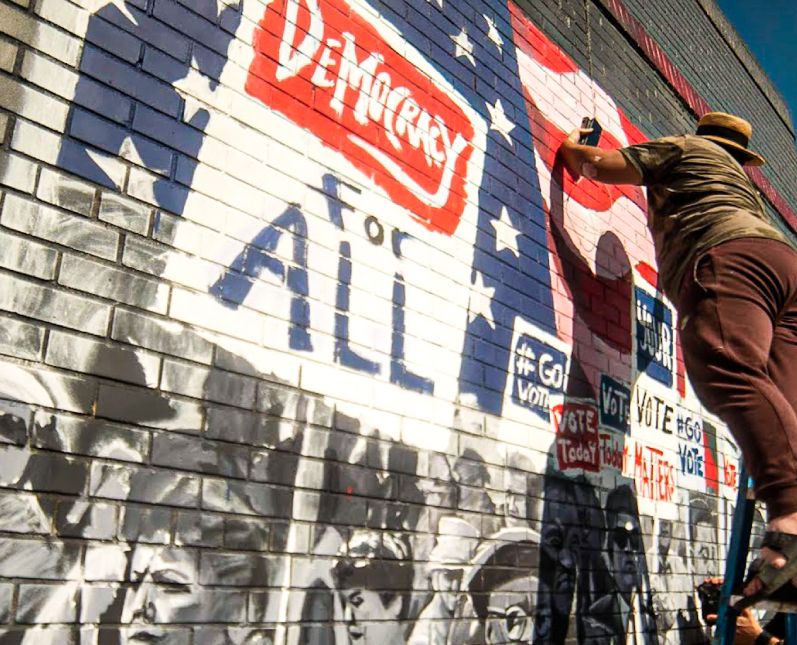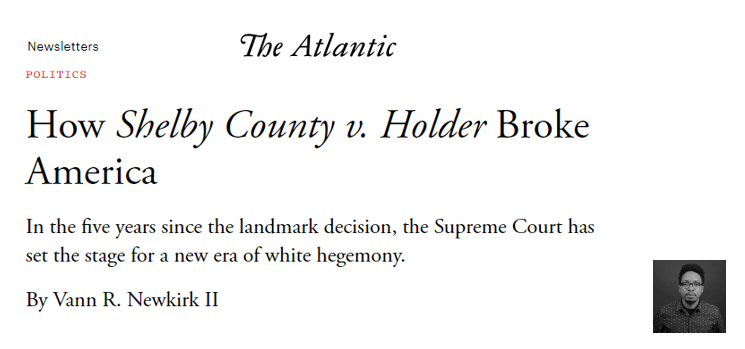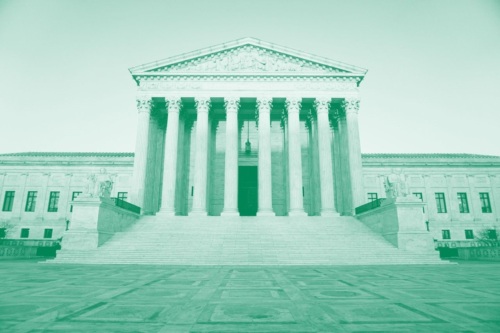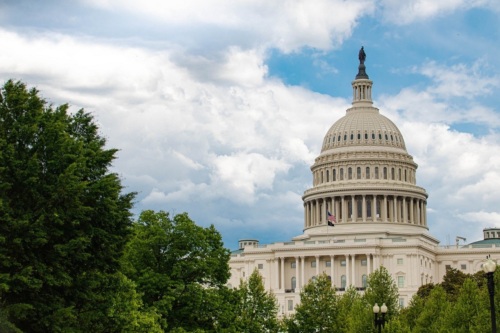2023 National Environmental Scorecard: After the Hottest Year on Record, Which Members of Congress Voted to Protect People and the Planet?
Feb 28, 2024

Although President Lincoln issued the Emancipation Proclamation in January 1863, it wasn’t until June 19th, 1865 that enslaved Black people in Galveston, Texas learned of their freedom. A celebration of Black resilience, independence, and community, our country now officially commemorates June 19th, or “Juneteenth”, as the day when the nation’s last enslaved people received the news of their long overdue emancipation.
Today, Black people continue to fight for the rights of full citizenship, including leading the charge to break down barriers to voting.
1870: While the Fifteenth Amendment gave Black men the right to vote, most Black people were still barred from voting including through Jim Crow laws and practices defended by racist judges who were complicit in upholding discriminatory practices, as well as by widespread violence and intimidation.
1965: Ninety-five years later, Congress passed the Voting Rights Act (VRA) to ensure the voting rights promised by the Fifteenth Amendment were being enforced, finally providing meaningful federal protections against discriminatory voting practices.

2013: Ten years ago, the Supreme Court gutted a key provision of the VRA in the landmark case Shelby County v. Holder, which spurred an avalanche of voter suppression legislation across the country. In this case, right-wing justices (led by Chief Justice Roberts, who is known for his anti-voting rights agenda) effectively eliminated a core VRA protection that required jurisdictions with a history of discrimination to receive federal authorization before changing their voting procedures.
Within hours of the decision, Texas, Mississippi, and Alabama announced strict voter ID laws. Less than two months later, North Carolina followed suit and passed HB 589, which, in addition to strict voter ID requirements, restricted early voting and pre-registration, limited the authority of county election boards, and eliminated same day registration and annual voter registration drives.
Judge Diana Gribbon Motz writing for a panel of the U.S. Court of Appeals for the Fourth Circuit that eventually struck down HB 589. (2016)
Laws like these target Black voters, and other voters of color, who are disproportionately impacted by voter ID laws, limited early voting, and limited polling times and locations.
Melanie Campbell, President and CEO of the National Coalition on Black Civic Participation (September 2022)
LaTosha Brown, Co-founder of Black Voters Matter Fund (July 2021)
This year marks the 10 year anniversary of Shelby County v Holder and Black voters are still feeling its impact, as well as the impacts of other detrimental voting rights rulings. In the 10 years since the Shelby County decision, jurisdictions previously covered by preclearance have purged an astonishing number of people from their voting rolls. An investigation by the Brennan Center estimated that over 360,000 voters were improperly purged in Texas. In Georgia, that number was 1.5 million.
It’s not just voter roll purges; attacks on people of color’s voting rights have come from every direction. Over the last 10 years, court decisions at the local and federal levels have significantly weakened voting protections. While SCOTUS’ recent decision Allen v. Milligan did not weaken the Voting Rights Act any further, the Court’s track record on voting is abysmal. In 2023 alone, legislators in 45 states have introduced at least 322 anti-voting measures that would disproportionately affect people of color, according to the Brennan Center.
With the Supreme Court repeatedly attacking the federal VRA, some states have taken matters into their own hands.
Connecticut, California, New York, Oregon, Virginia, and Washington have all passed state Voting Rights Acts, with the Connecticut VRA as the most recent passage in June 2023 and leading as the most comprehensive state VRA in the country. New Jersey, Vermont, Michigan, and Maine have similar legislation in the works.
Julianna Larue, Connecticut LCV’s Climate Policy and Outreach Coordinator (2023)
Those fighting for the protections guaranteed by state VRAs continue to bring locally tailored solutions for upholding voting rights and protecting historically disenfranchised communities from voter discrimination in their communities.
We’ve made incredible progress, but we still have a long way to go.
In order to continue moving toward a more equitable and just future for everyone, we must ensure voting rights for all people. Targeted attacks on the voting rights of Black people not only lead to the exclusion of other communities of color, but are ultimately an attack on democracy itself.
Poet Maya Angelou
The John R. Lewis Voting Rights Advancement Act and Freedom to Vote Act, which would defend voters against discriminatory voting policies and gerrymandering.
The Judiciary Act, which would expand and rebalance our stolen Supreme Court by changing the number of justices from 9 to 13. We must fight for a Supreme Court that will uphold voting rights for all, especially Black communities. Support LCV’s efforts to rebalance the courts and approve pro-democracy judges by contacting your representatives here.
And, DC needs to become a state.
Advocates have long pushed for DC statehood, which would make DC the Blackest state in the U.S. DC’s lack of representation and local autonomy is part of our nation’s wider practice of oppression and disenfranchisement of Black people. Congresswoman Eleanor Holmes Norton was a Civil Rights Movement leader and now serves as DC’s delegate in Congress, where she can help draft legislation but not vote. Follow Congresswoman Norton, who is leading the fight for DC statehood, on Twitter @EleanorNorton. And, tell Congress, DC voters deserve equal rights here!
Act Now
The Supreme Court’s right-wing majority could soon neutralize key provisions of the Voting Rights Act, the landmark civil rights law that protects the right to vote for all communities.
Decades ago, civil rights leaders fought and died to protect laws like the Voting Rights Act. Now, their legacy is at risk as right-wing judges seek to peel back those rights, ignoring federal law and decades of legal precedent.
The Senate must act urgently to turn the tide in the federal courts. But right now, they are sitting on dozens of judicial nominations. Take action right now. Tell your senators to confirm these pro-democracy, pro-environment judges without delay.

Act Now
Congress has been voting to override the will of D.C.’s local government, overturning voting rights legislation and a revision of its criminal code. It’s the latest slap in the face to D.C. residents, who have been denied fair representation and local autonomy for far too long.
D.C. residents — predominantly people of color — currently have NO full voting members of Congress and limited control over decisions that impact their democracy, their rights, their environment, and their local communities.
The only solution is statehood for the people of Washington, D.C. Send a message to your member of Congress now.
